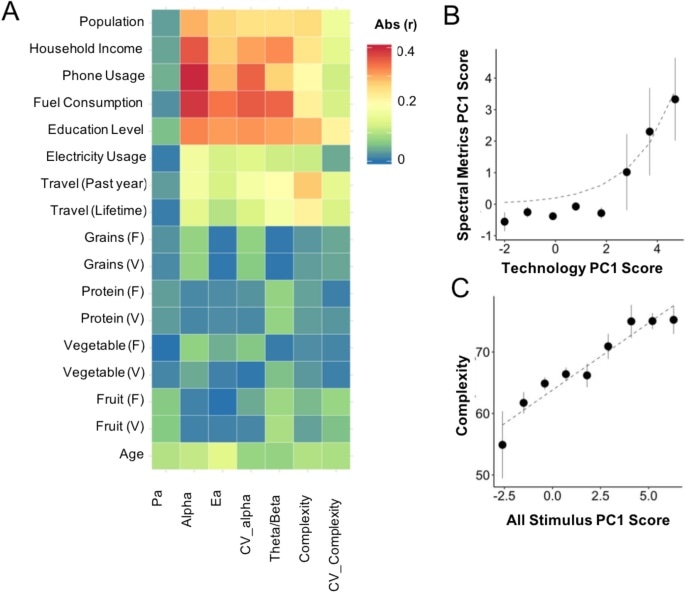The Sapien Labs' Human Brain Diversity Project today released an academic paper demonstrating key relationships between stimulus environment and human brain physiology.

Led by Dr Tara Thiagarajan, Founder and Chief Scientist at Sapien Labs (PhD, Stanford University), the Human Brain Diversity project studies the impact of life experience on human brain physiology and how it informs cognitive and mental health outcomes. This study looked at individuals from pre-modern villages to urban hubs in India, demonstrating that various elements of modern life such as education, travel, cars, and cell phones that alter the rate and scope of the stimulus environment have had a profound impact on brain physiology. Brain physiology was measured with Electroencephalography (EEG), a noninvasive monitoring method where electrodes are placed on the scalp to measure electrical activity.
This unique scientific study reveals fascinating insights into the impact of our changing environment on the brain. Key findings are that the transition to smartphones and the internet may have significantly enhanced a key feature of brain activity called the alpha oscillation, and that education and travel differentially impact the complexity of brain waves.
According to Dr Thiagarajan, it is vital that we understand how the brain's function is impacted by our differing experiences and access to resources and technology.
Unlike any other organ, the brain evolves across the lifespan not just by consuming nutrients but also by consuming external stimuli. These findings demonstrate a profound divergence in physiology based on stimulus consumption with significant implications for the consequences of income inequality.”
Dr Tara Thiagarajan, Founder and Chief Scientist, Sapien Labs
The study calls attention to the societal consequences of our changing stimulus environment, and the imperative to understand and address the impacts of stimulus inequity on the brain and its cognitive health as part of a global development agenda.
With over 7 billion people on the planet, we have over 7 billion unique life experiences and as many unique brain wirings. This study also calls attention to the need to understand the global diversity of the human brain, and opens up new and intriguing paths of investigation in this respect.”
Dr Tara Thiagarajan
Sapien Labs
Parameshwaran, D., et al. (2021) The impact of socioeconomic and stimulus inequality on human brain physiology. Scientific Reports. doi.org/10.1038/s41598-021-85236-z.
Posted in: Medical Science News | Medical Research News
Tags: Brain, Cell, Diet, Education, Mental Health, Nutrients, Physiology
Source: Read Full Article
